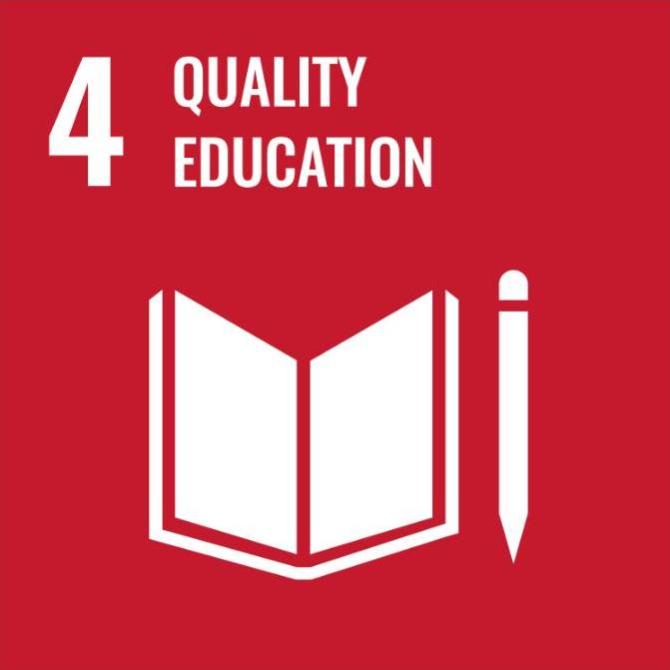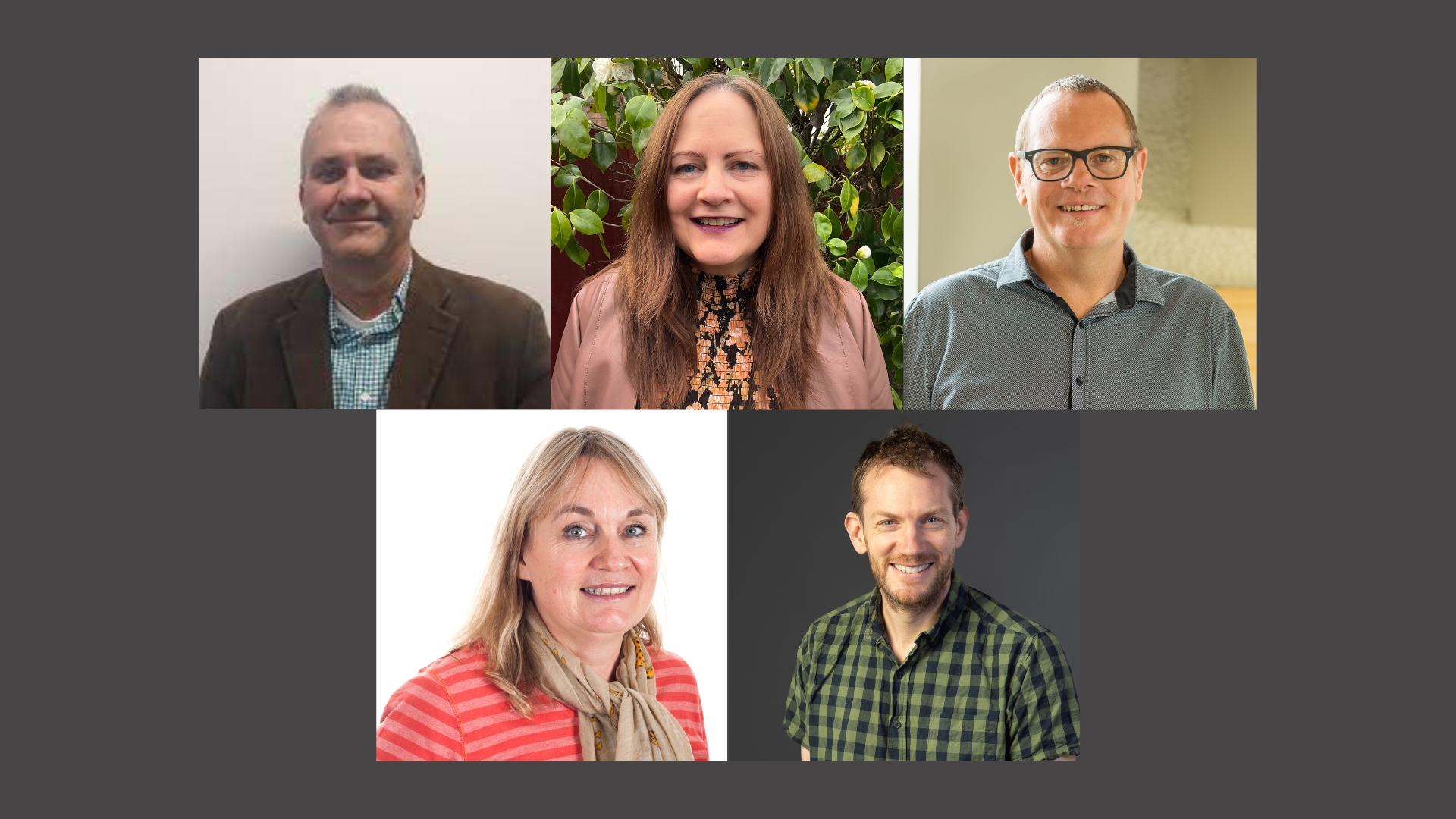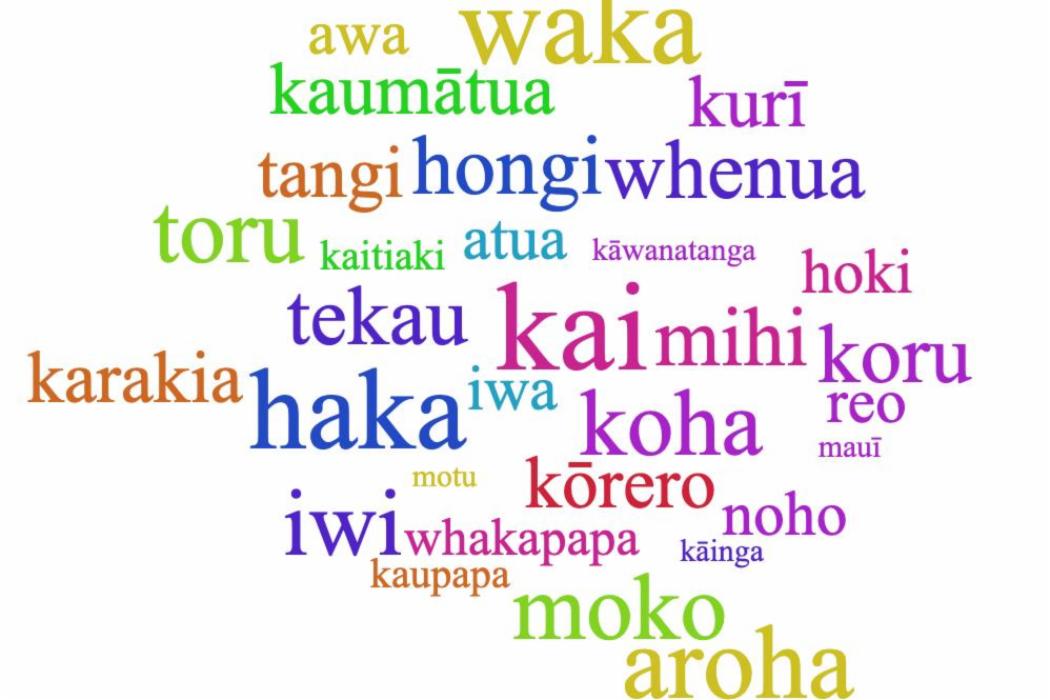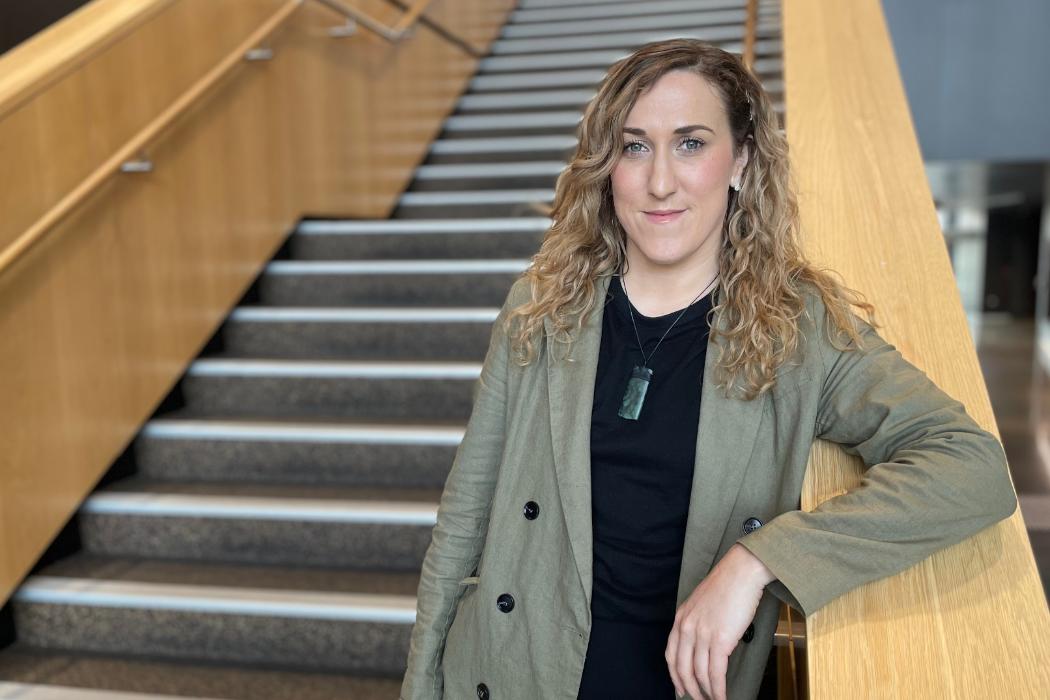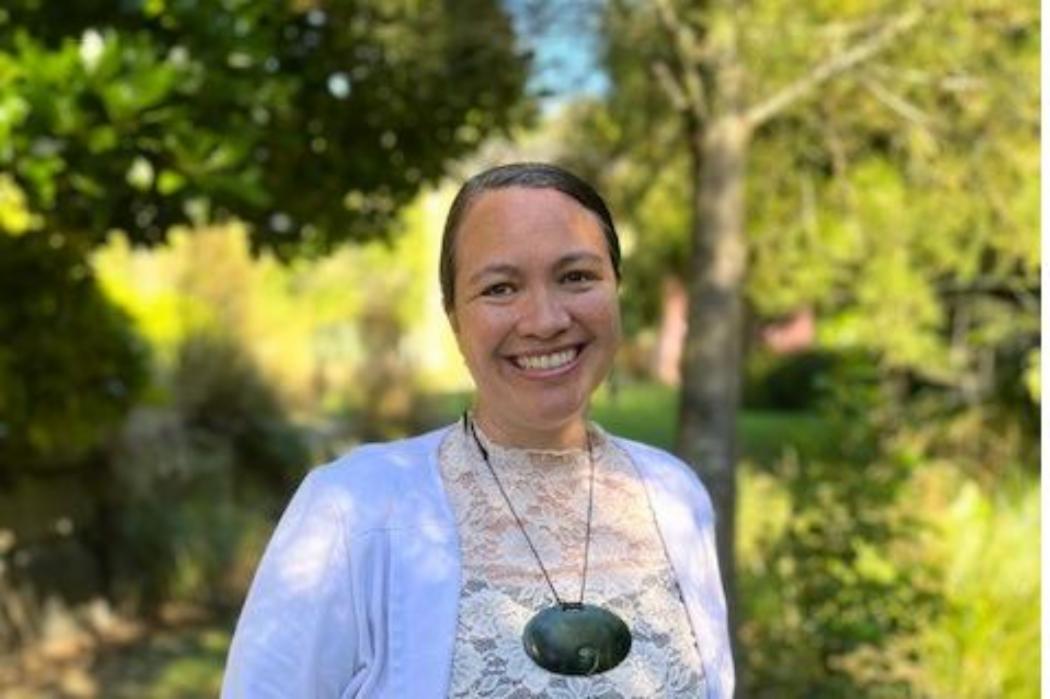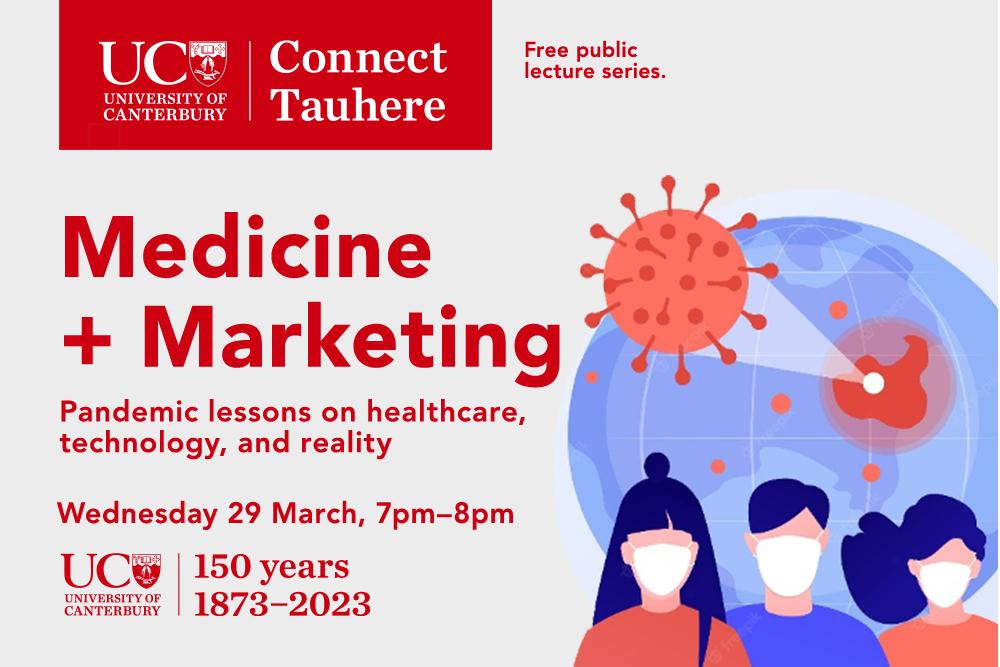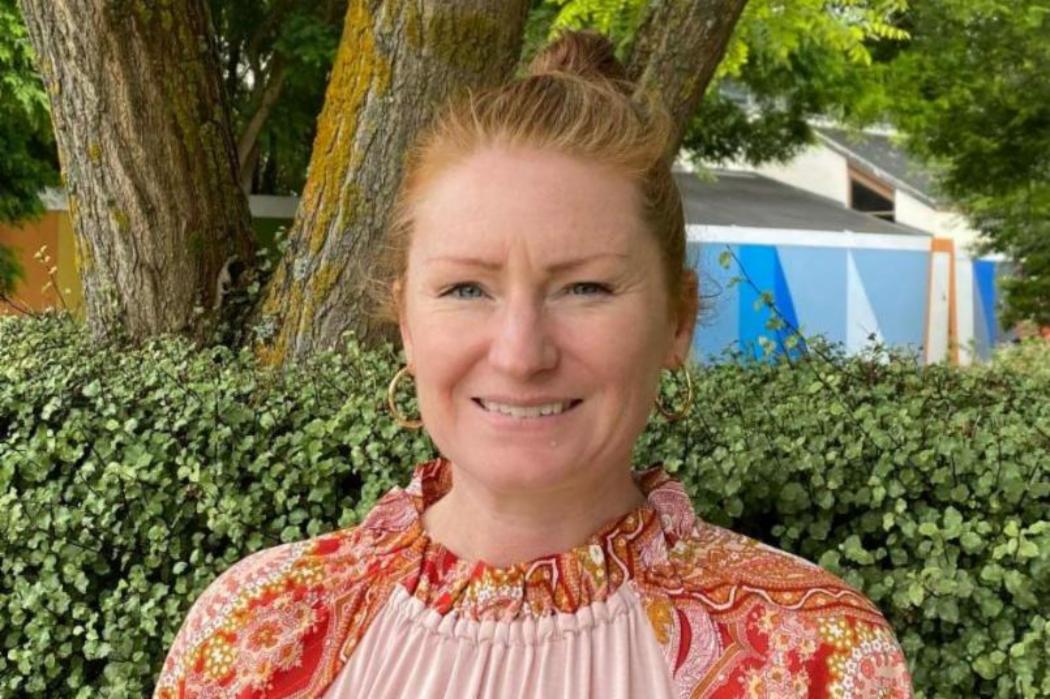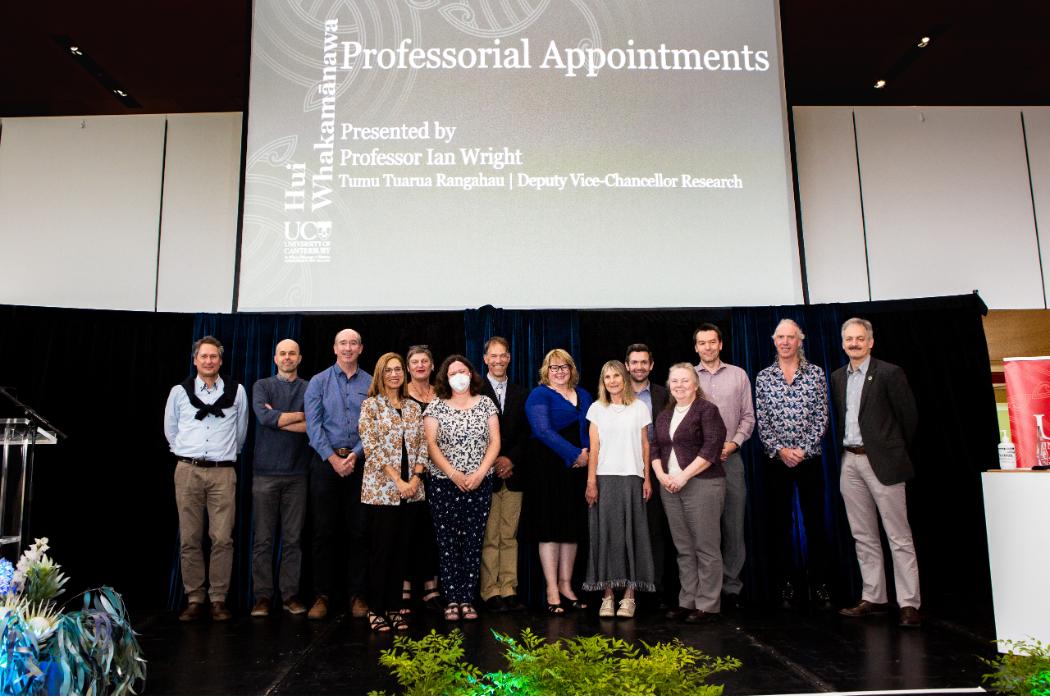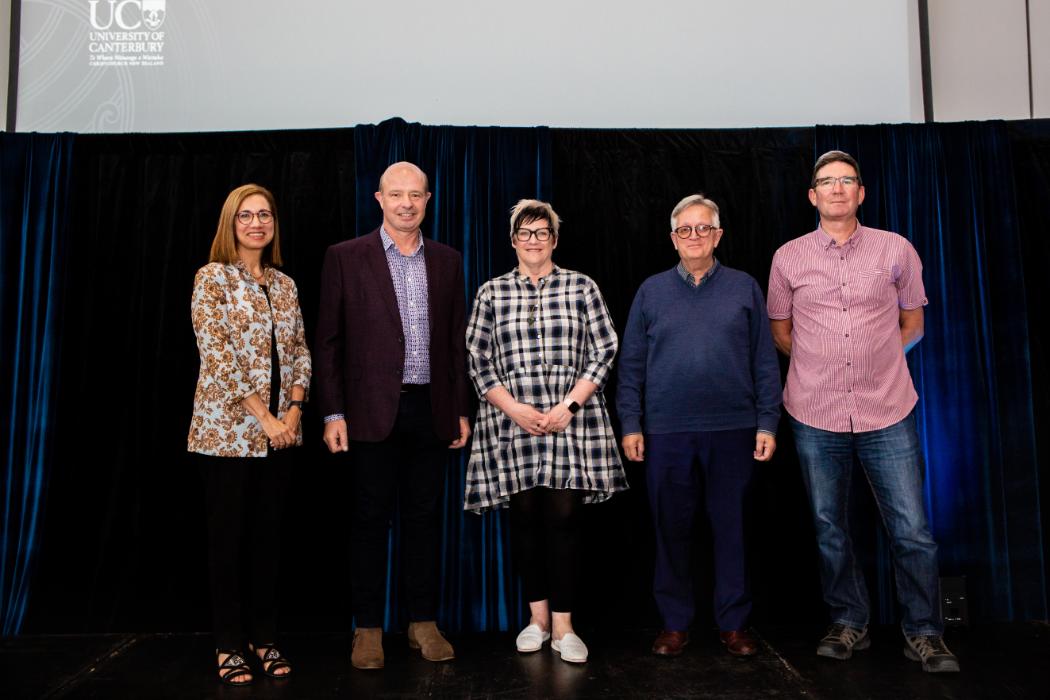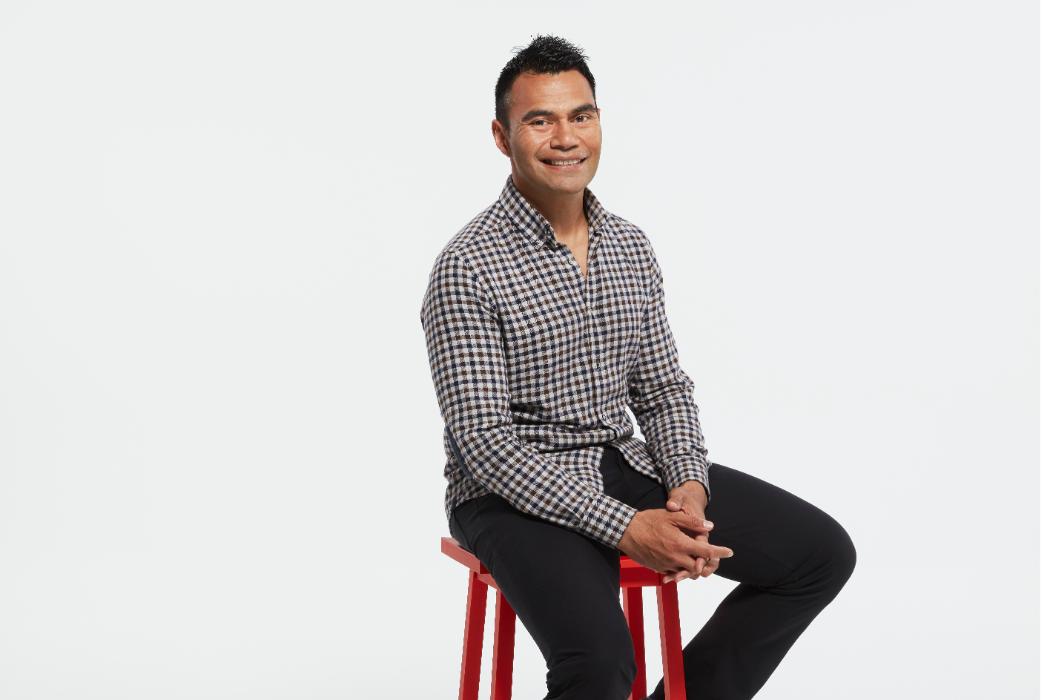The resource, which is the first and only ‘maths box’ available in Aotearoa New Zealand, was co-created by University of Canterbury Senior Lecturer Dr Jeanette McLeod and her fellow mathematician and Senior Lecturer in the School of Mathematics and Statistics Dr Phil Wilson. Together, the pair founded Maths Craft New Zealand in 2016, a non-profit initiative dedicated to engaging the public with mathematics through craft.
The two mathematicians recently teamed up with an educational researcher, University of Canterbury senior lecturer in Teacher Education Dr David Pomeroy, who is a former secondary maths teacher, and a designer who specialises in science communication Jo Bailey of Massey University, to create Maths Craft in a Box.
“Maths is often overlooked as a subject of beauty and imagination,” says Dr McLeod. As a pure mathematician at UC and a principal investigator of Te Pūnaha Matatini, she has a passion for sharing the creative, playful side of mathematics.
She says Maths Craft in a Box helps teachers bring “real mathematical thinking into the classroom at a crucial age for children” as research has shown that attitudes towards maths can become fixed in intermediate school.
“Maths Craft will help our hardworking teachers by providing this creative and free resource to bring mathematics to life as a subject,” Dr McLeod says.
“Students who already love maths will find something new and enriching in the Box, and our pilot project showed that most children who don't like maths feel differently after engaging with the Box.”
The Box includes enough content to easily fill several lessons for Years 7-13, and can be entirely student-led. Go to www.mathscraftnz.org/box to sign up.
What’s it all about?
According to award-winning Maths Craft co-creators Dr McLeod and Dr Wilson, Maths Craft in a Box helps teachers bring real mathematical thinking into the classroom at a crucial age for children. Mathematics underpins all of science and engineering, but New Zealand's performance in international measures of mathematical understanding is getting worse at a time when STEM subjects are increasingly central to our economy and important for solving the world's problems.
They also hope to change some long-held misconceptions about mathematics, because while elsewhere in the world maths is seen as a gateway subject for a wide variety of important careers, in New Zealand it is still common for children to be told that if they are good at maths they should become engineers or teachers.
Why do we need mathematicians?
Dr McLeod says New Zealand needs more engineers and more teachers, but it also needs more physicists, statisticians, data scientists, computer scientists, programmers, mathematical modellers, actuaries, climate modellers, and many more besides, all of which rely on advanced mathematics.
“In the last few years, we have seen the crucial role played by mathematicians in the government's response to Covid-19. We will need more mathematically trained people as we respond to future threats of disease, climate change, and cyber security. And since New Zealand's future economy will rely more heavily on STEM-driven industries, to compete internationally and improve life for all New Zealanders, we need to firmly put the M in STEM.”


